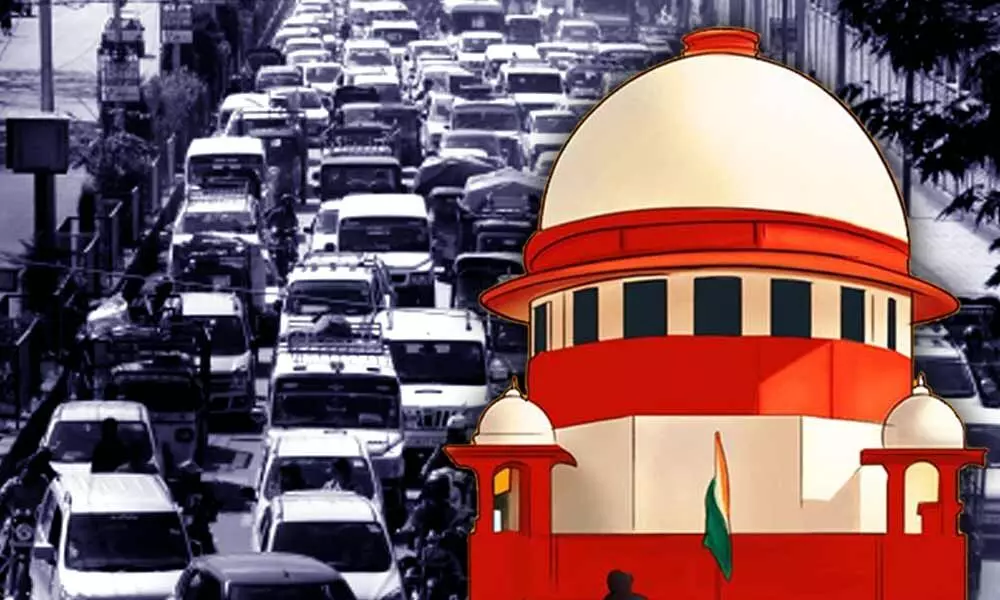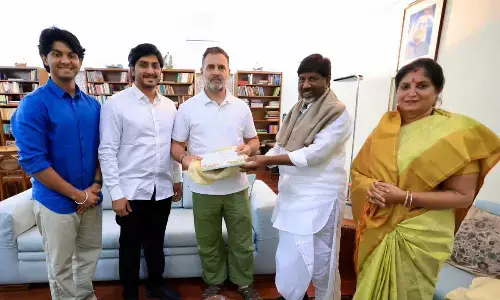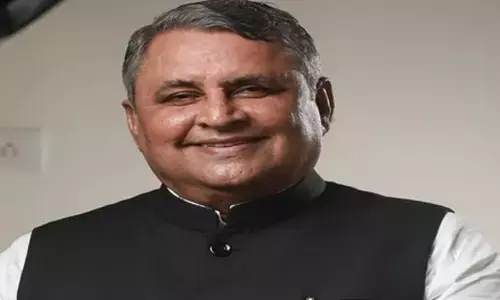Kaushambi: Supreme Court seeks traffic plans within 3 weeks

Kaushambi: Supreme Court seeks traffic plans within 3 weeks
The Supreme Court has sought within three weeks, a comprehensive traffic management plan for the Kaushambi area in Ghaziabad, as it set up a committee comprising of representatives of statutory authorities of Uttar Pradesh and Delhi.
New Delhi: The Supreme Court has sought within three weeks, a comprehensive traffic management plan for the Kaushambi area in Ghaziabad, as it set up a committee comprising of representatives of statutory authorities of Uttar Pradesh and Delhi.
A bench comprising Justices D.Y. Chandrachud, M.R. Shah and Sanijv Khanna said: "Merely treating it as a matter of law enforcement will not provide a long-lasting solution.
"Ad hoc reactions to a deeper malaise will bring no relief to the residents, users of public transport and those providing public transport."
The observations were made by the bench during the hearing of a plea by president Kaushambi Apartments Resident Welfare Association and Ashapushp Vihar Awas Vikas Samiti Ltd.
The plea cited a range of issues from haphazard traffic management to environmental pollution and unrestricted dumping of municipal solid waste. The petitioners added that residents in the area are also suffering from serious respiratory issues.
"Essentially, the issues which have been highlighted bring focus upon improper planning and the poor implementation of development plans and statutory provisions," noted the bench.
However, the top court decided to take up the problem of traffic management.
Advocate Gaurav Goel, representing the petitioners, brought on record issues which have created suffering for the residents in the area: Haphazard parking of three wheelers and other vehicles on public roads, including service roads; absence of adequate spaces for the parking of public service vehicles; pollution which is generated by buses plied by the Uttar Pradesh State Road Transport Corporation; use of pressure horns by vehicles and absence of law enforcement machinery causing serious hardship to pedestrians.
In the backdrop of these issues, the top court directed to constitute a committee consisting of representatives of statutory authorities in Uttar Pradesh and Delhi government, "so that a coordinated and concerted effort can be made by the authorities in both the jurisdictions to resolve the issue through a unified approach."
The committee comprises: divisional commissioner, Meerut; chairperson, Ghaziabad Development Authority; municipal commissioner, Ghaziabad Nagar Nigam; district magistrate, Ghaziabad; Transport Secretary of Delhi government; municipal commissioner, East Delhi Municipal Corporation and other authorities concerned.
The top court observed that a matter had come up before the National Green Tribunal (NGT) raising issues like pollution, illegal parking, encroachment of roads and pavements, use of diesel generators and the tribunal had constituted a committee.
"The efforts which have been undertaken by the NGT in the exercise of its statutory jurisdiction need to be appreciated and must continue. However, it is evident that the situation on the ground has not changed substantially, as a result of the problems which we have noticed in the earlier part of the order," said the top court.
The bench said experience shows that a direction by the court to the law enforcement machinery may result in some action, even high-handed action for a few days, until the position is restored to the original status which becomes the new 'normal'.
"Before we address the issues which are raised, we are categorically of the view that the problems which have confronted Kaushambi and Ghaziabad, in general, cannot be treated in a manner isolated from the wider context of the National Capital Region.
"This is not merely a matter which pertains to the Ghaziabad Development Authority or, for that matter, other authorities within the State of Uttar Pradesh alone," added the top court. The bench has posted the matter for further hearing on April 14.









